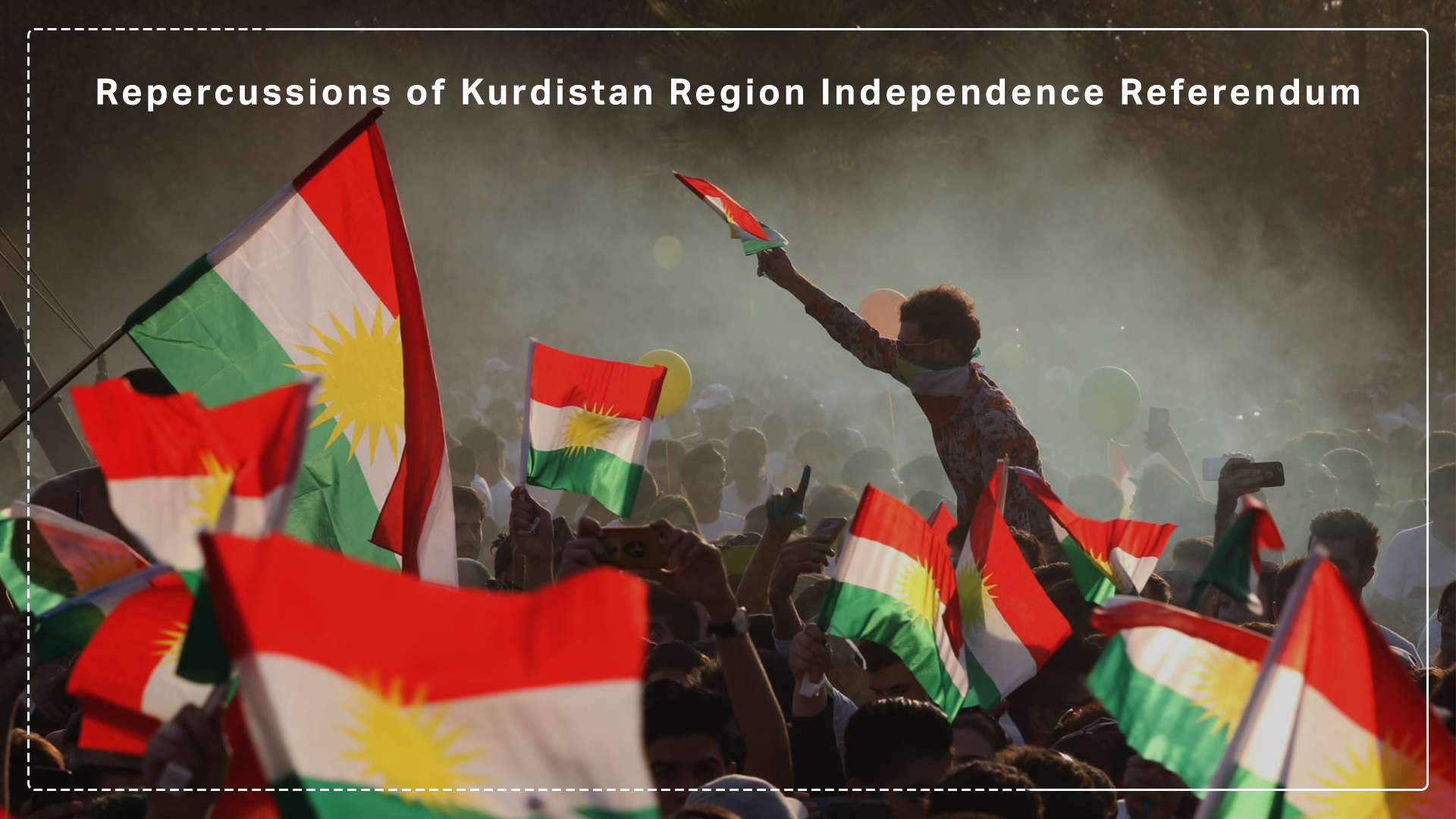Repercussions of Kurdistan Region Independence Referendum

The repercussions of the independence referendum conducted by the President of the Kurdistan Region of Iraq at the time, Mr. Masoud Barzani in 2017, have continued in the Kurdistan Region to this day. After the referendum, the region lost most of the “disputed” areas that were liberated from the grip of ISIS along with the city of Kirkuk in favor of the federal government in Baghdad, in addition to reducing the region’s budget from 17% to 12.6% and opening the issue of crossings, investments and oil revenues. The repercussions also affected the relations between the Kurdistan Democratic Party (PDK) and the Patriotic Union of Kurdistan (PUK) after their withdrawal from the city of Kirkuk. These differences, whether internal through pursuing a policy of exclusion and weakening the other, or external through their alliances with Iraqi parties and parliamentary blocs to preserve their personal interests, greatly affected the role of the Kurds in Iraqi political life.
The recent policy of the ruling party, PDK, in Kurdistan region to present their presidential candidate Hoshyar Zebari for the presidency of Iraq is a great evidence of the deep gap that has occurred between the two main parties in the region and the opening of a marginal conflict between the Kurds themselves over the presidency of the Kurdistan region. There is an agreement between the PDK and PUK that if the presidency of the Kurdistan region is one party’s share, then the presidency of Iraq is the other’s, and this means that the presidency of Iraq is the PUK’s share. The Iraqi Federal Court issued, the highest judicial authority in the country, a decision to permanently exclude Hoshyar Zebari from running for the presidential elections after being accused of corruption when he was Minister of Finance in the federal government, as a result of which he was dismissed from his position on September 23, 2016. The Federal Court also issued a ruling on February 15, 2022, deciding that the Oil and Gas Law of the Kurdistan Regional Government (KRG), issued in 2007, was unconstitutional for violating the provisions of constitutional articles as well as obligating the region to hand over oil production to the federal government. The decision included obligating the KRG to hand over the entirety of oil production from the oil fields in the region and other regions, in which the KRG Ministry of Natural Resources was investing, and hand it over to the federal government represented by the Iraqi Ministry of Oil, enabling it to use its constitutional powers with regard to oil exploration, extraction and export, and reviewing all oil contracts concluded by the KRG regarding the export and sale of oil and gas.
The PDK’s control over most of the country’s resources, especially oil and gas, made that wealth confined to the pockets of some of the ruling families, at a time when the majority of Kurdish citizens live in difficult economic conditions, and the escalation of the migration wave to European countries, which prompted many Kurdish opponents at home and abroad to declare their support for the Federal Court’s decision that the Oil and Gas Law in the KRG is unconstitutional. This is to facilitate the monitoring of oil and gas revenues and how they are spent by the KRG and to put an end to the rampant corruption in the region. It is also likely that Turkish-Iraqi understandings will occur in the future to strike the region economically by increasing the siege on it and spreading strife inside to cause Kurdish infighting to expand militarily within the region.
So, the policy pursued by the KRG in dealing with the Turkish occupation state, the main enemy of the Kurds, away from the Iraqi government and the Kurdish issue, and the policy of exclusion inside Kurdistan, and the control of the country’s capabilities by some families in the region, made the region an arena for controversy with neighboring countries, and gave them a strong impetus to unify positions to achieve their goals, put the region’s gains in danger and accelerate the pace towards a popular revolution, which the federal government and regional states may exploit to achieve their goals by weakening the KRG and undermining its role in the Iraqi political process, and of course, its impact may extend to Rojava, areas of the Autonomous Administration of North and East Syria, unless there is consensus between the two main parties to end the differences and unite the ranks in facing the challenges that beset the region.




